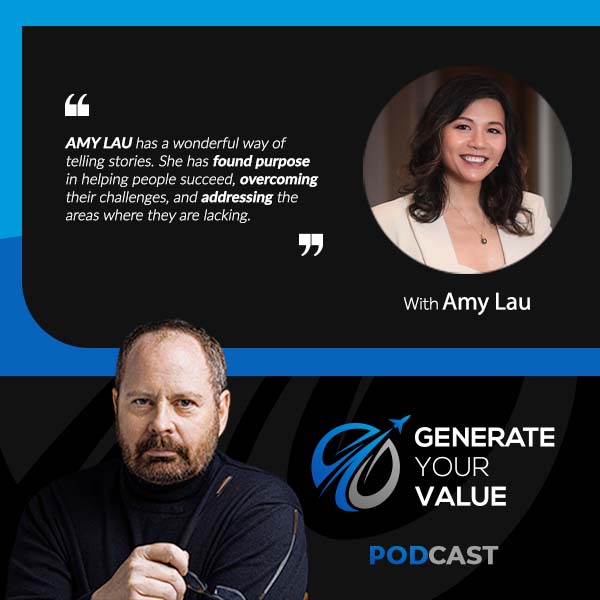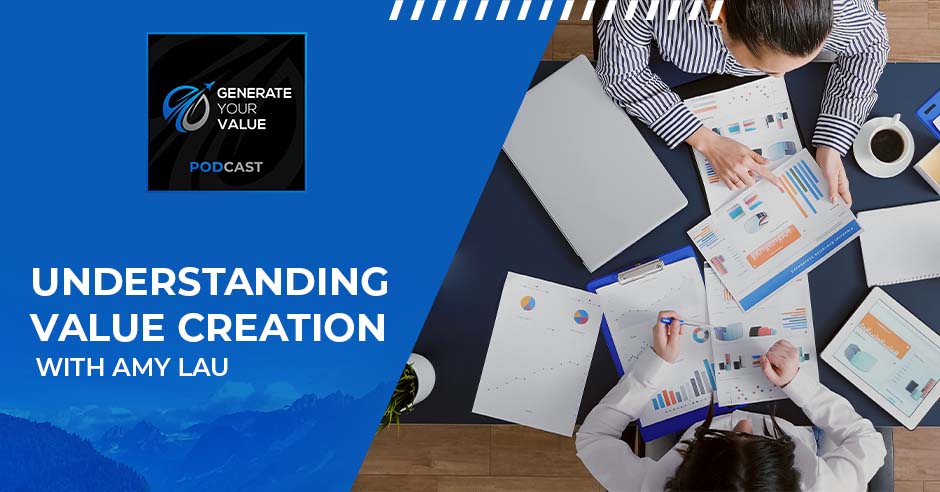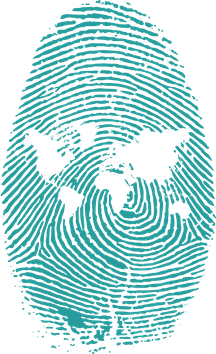Achieving success as an immigrant in a foreign country takes a lot of guts and a high level of resilience. For Amy Lau, an immigrant from China, found her purpose in storytelling and embracing the art of value creation. Joining Andy McDowell, she shares her journey to becoming an entrepreneur and sales expert adapting to a new culture and language. Amy talks about the struggles and triumphs in building relationships, the right approach to listening to clients, and becoming versatile and flexible at all times. She also discusses why you as the salesperson should be the very first person to believe in your product and focus on your niche audience instead of casting a wide net.
—
Listen to the podcast here
Understanding Value Creation With Amy Lau
Welcome to the show. I’m going to bring you a guest that has a wonderful story. We all know that the United States, which both of us are based out of, is a melting pot. We’re going to get into that melting pot and talk about an immigrant story that is fascinating. When I first met her several months ago when we first arranged for this conversation, I was taken aback that she is able to tell her story in such a way that I felt like I was there. That’s the exciting part.
What I’m looking forward to in our conversation is that she has a wonderful way of telling stories. If you tuned in to this show long enough, you know the power of storytelling. We caught her at a time when she went to Wilmington, Delaware, and told a story on a TEDx stage. I haven’t seen it yet, but I’m looking forward to talking a little bit with her about what she spoke about and why she’s passionate about those types of things.
Have a seat. Put your seatbelt on, grab your favorite cup of coffee, and know about my guest, Amy Lau, tell her stories of her life. We’ve picked a topic at the end that I don’t think you’re going to be surprised about. If you’re an avid reader of this show, it’s something that we talk about here all the time. As I typically do, let me start with Amy’s bio and then we’ll bring her in and you’ll get to know her a little bit, and then we’ll talk about one of her and I’s favorite topics as we wind this conversation down.
Amy is a best-selling author, a TEDx speaker, an entrepreneur, and an advisor. Her life’s work centers on demystifying and solving the black box of sales to build sustainably thriving businesses. Amy’s collaborative philosophy comes from being an immigrant where teamwork and transparency of communication are truly valued.
Seeing her clients’ successes as her own, Amy has an innate ability to cultivate relationships, serving her clients with an ethic of integrity, shared success, and win-win collaborations. Together with her business partner and husband, The Wau Factor utilizes a holistic, well-rounded approach to advise their clients in sales, finance, and operational strategies.

‐‐‐
With that being said, Amy, welcome to the show. Thank you for taking that valuable resource of yours called time to come spend it with us.
Thank you. It’s an honor to be here with you.
Looking Back
As I typically like to do in my conversations with folks, I like to start off by letting our audience get to know you better through your life story. Pick a spot, somewhere in the timeline of your life, so to speak, and help fill in those crevices, if you will, in your bio of how you got to where you are, the challenges you faced, and those types of things.
Thank you. I was born in mainland China. My dad was a successful neurosurgeon and was the head of the hospital. My family all lived under one roof, my grandma, my parents, my cousins, uncles, and aunts. It was everybody.
That is not unusual in China.
The family lived all together. We were one big happy family. They love that I got up and walked without crawling first. Also, I started to talk early at eleven months. The story they’d like to tell about me is that I would recite the entire Chinese opera word for word after hearing it once. I was really celebrated by my family.
We then moved to Hong Kong. We got train tickets to leave and go to Hong Kong where I lived for 3 years until I was 8 years old. During that time, I went to a private school with all girls. They had chapel every morning, but instead of listening to the pastor talk about the chapel Bible stories and so forth, the girls would gather around me and listen to me retell the stories of the Monkey King, which my dad told me as a bedtime story the night before. I learned that I was a good storyteller early on because I captured their attention instead of Bible stories.
The shift came when we moved from Hong Kong. We got passes to come to the US where we moved to Seattle. Overnight, my world completely shifted because I didn’t have the language and I had to learn a new culture. That shifted. I felt retrieved into myself from being an extrovert to more of an introvert as I had to learn all of that. I became my parents’ bridge to the world as their translator and negotiator. I negotiated cars and houses for them at a young age. I was also their protector. Doing all of that, I lost sight of myself and lost my authentic voice. That’s part of the story that I told on stage at TEDx Wilmington.
From there, I learned to adapt. Adaptability and being flexible is a really good thing. I also became a people pleaser because I had to learn to get people to like me and to build rapport. I became more shy. What I loved to do was I love to write. For some reason, I was in the spelling bee even though English was my 2nd language or even 3rd language because we had different dialects that I learned in Chinese. I loved to write essays. I was good. If you had a test that involved me writing, then I would ace that test because I love to write and express myself in that creative way.
Come college, we had to choose a major. I wanted to be in creative writing, but my mom, playing it safe and being an immigrant, which my parents struggled with, said, “That’s not a profession. Choose a more practical profession like business.” That’s how I ended up in business. My parents struggled, and I’m going to walk back a little bit, from my dad being this superstar to not being able to find a job in America.
He was even a garbage man. He was working in the rehab centers. He did Amway. He sold jewelry. He moved around the country trying to find a job. He could not pass the AMA, American Medical Association, exam because he learned English from the dictionary. They didn’t give him enough time to finish the test. There was some wasted talent that could have been involved.
My mother took to supporting the family by being a housekeeper at Virginia Mason Hospital. She did that for most of her career. She was able to become a lab technician later on because they promoted her. She supported the family while my dad was finding out things. He did some day trading and so forth. We were part of the intellectual class of people. When we came here, pretty much, they sacrificed everything so that we could live better lives. I’m always reminded of that when I feel a little bit lost. I think of what my parents did to bring us here. That makes me a little emotional. For me, this journey in life, I live it and I carry it with me.
The main purpose of them leaving Hong Kong where they had a pretty prominent life in the US was, at least for you and the following generations, to have an even bigger life than Hong Kong. Is that right?
Absolutely. We felt that we were upgrading our lives. My parents were willing to start over in their late 30s and 40s at the time. In coming to America, it’s the American dream. It’s about an opportunity to start over and build whatever it is that you choose. To my parents, their children would have better opportunities being in the US than we would have in China or Hong Kong. Hong Kong was British-occupied at the time. They transitioned back to China.
That transition occurred after all of you had come to the United States.
The transition happened after. It was in the late ‘70s that we got here to the US. I was seeing my parents suffer. It was a real challenge for them, and then it was an adjustment for us because we felt like we had this childhood where I was learning the piano and I had friends who adored me. We had everything all set, but it was an upheaval for my little brother and me as well. He’s two and a half years younger. English was a challenge for my parents.
Later on in life, I wrote an article. I was an editor at one point in a newspaper. I was able to be a contributing editor for articles. One of the articles I wrote was about the melding of Eastern and Western medicine, which I saw in my vision at the time because my father became an acupuncturist only. He was trained in both Eastern and Western medicine, but he was able to practice Eastern medicine, herbal medicine, and acupuncture. I saw that it would converge at some point, which we’re looking at now. We are seeing the convergence of Eastern and Western medicine, which I’m happy to see. It was an interesting thing that I wrote the article way back when before I knew anything would take place.
Chinese Vs English
I can appreciate what the differences are between the English and Chinese languages. I spent a lot of time in China in my Boeing career. I led a team of people to help the Chinese government get Beijing airport ready for the Summer Olympics in 2008.
The Bird’s Nest.
The Bird’s Nest was being built. The Bird’s Nest, for those that don’t know, and I believe that this is what you’re referring to, is the big international terminal that they built at the airport prior to the Olympics. They opened it before the Olympics. They were adding the Bird’s Nest. They were adding a 3rd runway and a 2nd control tower at the airport. To do all that at once is very challenging. That’s what we helped them with, but I digress.
Why I bring this up is I was in Beijing over a weekend by myself and nobody else from my team. I was looking for things to do. There is one spot in the Great Wall that’s within a reasonable drive, like 1 hour or 1 hour and a half out of Beijing, so I booked a tour. The tour went to a lot of the hotels in the area, picked up people who were staying at the hotel, and took them to the Great Wall.
While we were traveling up there, the tour guide decided to give us a little bit of taste or a little bit of a lesson in the Chinese language. I came to understand that it’s almost the opposite of the English language. In the English language, you can have one word to pronounce it exactly the same way, but how you use it in a sentence tells you the meaning or the context behind the word. Whereas in the Chinese language, it’s the opposite. You can have one word, but you can pronounce it with the inflections and everything in maybe ten different ways and each inflection has a different meaning. That’s how you get that differentiation.
Since it’s almost the opposite between English and Chinese, that is what really gets people thrown out of whack. Trying to be based and grow up in one language and then convert over to the other is quite difficult. I have an appreciation for someone like yourself who came over with a Chinese language and had to learn English. It’s not easy because it’s so dynamically opposite, if you will, in a lot of ways.
I was eight years old when this happened, so it was a lot easier for me than my parents. For instance, the word dog is Gau in Cantonese and Go in Mandarin. The word number nine is Gau in Cantonese and Go in Mandarin. Dog and number nine are the same word but a different tone. It’s a different character. It is all about tone. Also, there’s a cultural adjustment. That was in Beijing in 2012. I saw what happened after the Bird’s Nest. People think that Chinese people yell a lot, but they’re talking loud. It’s normal.
It’s like being Italian. It’s a lot of loud. It’s back and forth and a lot of talking with the hands and so forth. Every culture has different styles, if you will, with that.
I was in Beijing in 2012. We went to the Bird’s Nest, which was an amazing structure. We were shown around by a Chinese team. My ex-boyfriend at the time was head of HP. We were there working with this Chinese team. They showed us around a lot. They told us that during the building before the Olympics, the athletes didn’t really want to come because of the pollution.
It was terrible at that time.
If your last name started between A and L or something like that, then you get to drive on Wednesday and Friday. If your last name starts with M through Z, then you get to drive on Tuesday, Thursday, and Saturday. That’s how they try to curb the pollution. With China being a big manufacturer, that does come into play.
It’s the coal plants too. I had one instance where I was flying home from a trip to Beijing and I was waiting at my gate to board the airplane. It was technically a clear day in Beijing. I was sitting there watching the flight operations on the runway, and you couldn’t physically see the airplane until it was almost on top of the runway because the smog was so thick. This is a summer day when it’s at its worst. It might as well have been fog. It was technically a clear day. I appreciate your comments about how bad it was.
One other thing that happened was that I couldn’t see the buildings. There was a huge rainstorm that year and it cleared everything. Some of the cars were stuck because of the infrastructure and the flooding of the streets. Some people died in their cars because they couldn’t roll down their windows. The insurance companies were sending people hammers to hammer themselves out of the car if that happened. This has taken place before that. It was a tragedy.
Sales Career
Let’s move on. You went to the University of Washington. I’m assuming a degree in business, and then you found yourself in sales. Let’s talk about that a little bit. Did you go into sales because it was the only thing that you could find or was there something that naturally attracted you about sales and business that you learned through college or wherever?
My mom said, “Pick a practical major, which is business.” I majored in marketing and finance concentrations at the UW, University of Washington. It was during a recession when I graduated, so nobody could find jobs. I was lucky because, at the right place and right time, I was interning for a company called NCR, National Cash Register. My division was no carbon required, which is the Business Forms Division or BFD.
I was offered a position in sales because I interned there. My manager, Sam Wan, was also Chinese. He saw potential in me. I started making cold calls from a phone book. Back then, we were using phone books. I got Nordstrom and Boeing. Those were off-limits. You can’t call on them. I called on whatever was left, and then I had to go feet-on-the-street out to the venues where people were like, “No soliciting,” and so forth. I had to make friends. Trust me, my very first client was my uncle Frank.
After trial and error and so forth, he wanted to give me a chance. He bought a honking box of receipts that was selling no carbon-required paper. I’m dating myself. I know it. I got awards from it. I became a good salesperson by learning the secret superpower that I forgot about back in Hong Kong as a storyteller is to relate to people. I had a knack for connecting with others and building trust.
I, over a long period of time, learned to listen because, in sales, people teach you that it’s not about what you’re saying. It’s about what you’re hearing and what people really care about. When you learn to understand people from what they’re lacking at the time and what their challenges are, help them overcome those challenges to their goals and what they care about, and help them to achieve, that was so rewarding for me because it’s not about me. I had to make a living and so forth, but it was a joy to see people succeed and be able to get promoted in their jobs because they utilized our systems.

I learned that selling one thing is not so different from selling another thing. I worked for IBM eventually. I worked for Microsoft first, which was selling software, and then I went to IBM. We sold hardware. I sold storage systems and tape. Who knows what that is anymore? You have to have a record, especially the banks. I was challenged with, “Everything is in the Cloud. We’re going to sell software as a service. Have you sold services?” I’d be like, “Yes,” and I’m going to sell services.
At every turn, when somebody told me, “You can’t do that,” I was like, “I’m up for the challenge. I’ll show you how it can be done.” Don’t doubt. Do it. I had to learn that grit over the years because there were enough people who had said, “I don’t believe you could do that,” or there was a lot of resistance to sales. That mystery or that black box that is called sales, people think of it as something like, “You’re going to put something over on me,” or, “You’re going to force me to buy something I don’t want or need.”
They don’t work on the relationship first and build up that trust level. They lead the interaction with something very different. It creates that vibe or that environment that leads to people going, “You’re trying to pull that wool over my eyes,” so to speak, as opposed to leading with a relationship and an understanding. It’s like, “I may not sell anything to you today. I want to understand. Tell me about your company, your role, what you’re trying to do, what problems you have,” and those types of things. You develop that rapport and the relationship.
Try to understand whether your company is offering something that’s a good fit to help them. If it’s not, then don’t be afraid to go, “I don’t feel like we’re a good fit with you today, but I love the relationship we’ve kept here. Let’s go out to lunch every once in a while.” Maybe three years down the road, they do have a problem where you’re a good fit. You’re going to be the first phone call because of the way you treated the customer even though you didn’t walk away with an opportunity.
I also don’t like to waste people’s time. I won’t be the first to tell you there are good salespeople and bad salespeople. Bad salespeople are misguided. It’s where you have to make a living and you’re following the money. I’ve done that in my life. I’ve followed the money. If you don’t believe in your product and you’re not excited about it, how can you possibly sell it?
Someone that’s going to be a lot more successful than the one-offs is the person that builds the relationships. They believe in their products so much that they’re like, “I am so excited to present this to you because it’s going to change your life. It’s going to improve your life in some way, and I believe that. If it doesn’t, then I bought you lunch. I got twenty minutes of your precious time,” because people are busy. I’m very respectful of that.
When you come in, be ready. In a business relationship, if you have an appointment with somebody and you’re the salesperson, put together what you want to cover. Tell them what you’re going to cover and cover that, and then follow it up with what the next steps are. It’s really important to qualify your clients. Are they really ready to sign up with your solution? Is this the right time? Is this the right audience? Are they the decision-makers? Get to the know.
It’s okay when you get rejected because the faster you get the rejection, the faster you can go to someone else who needs this product. You’re wasting time with a person who doesn’t need it. A maybe is also a no because the maybe is this hanging thing in the air and we want to keep following up with them. I would advise as a client or a potential prospective client for someone that if you don’t want it, tell them no. They would appreciate you for that. The salesperson would appreciate that because it gives them time to go do something else, somebody who values their solution.
The faster you get rejections, the faster you can go to someone else who needs your product.
Valuable Sales Strategies
One of my favorite conversations I used to have with my salespeople who sold my services within Boeing was, “You got to understand the playing field within the potential customer that you’re talking to in terms of decision-making.” The person you’re in front of or you might start with may have the power to say no to you, but may not have the power to say yes.
If that’s the case, how can you win this person over to be your advocate? A) Either meeting with a person who can say yes or B) Arming them with all the information. If you’re not going to get access to them, can you arm this person who is already across the desk from you with appropriate information so that they can then be your advocate in that decision-making process?
That’s a good point. When you are talking to an influencer potentially within the organization but they are not the decision-maker, sometimes, what I would do is gauge what their needs are in order for them to succeed. How do you make them look good in their organization? If they’re an influencer, I’m like, “Do you need some backup? Can I provide you with a conversation where we can show your boss, the decision-maker, how this is? We’re going to make you look good. This is also your idea because you’re bringing this about to your organization. Without this, your organization is not going to achieve its goals and vision.”
This is a culture that we live in, which is of collaboration. If you believe that it’s competitive out there, then you’re missing out on most of the big picture. It’s in collaborating with each other that we win. I really believe that. I’m a big promoter of if there are synergies within people and we can collaborate, we will win together. It’s a rule of thumb for me. If there’s not a win-win situation, do not enter.

I’ve learned my lesson where you have this intuition whisper or this little voice whisper to you saying, “Don’t go for it. There’s something you know off.” You don’t follow it and think, “I can make it work.” Your ego comes in there. It’s like, “You can make it work.” You go into a relationship and then it doesn’t work for whatever reason. You had that original intuition the whole time. Every time that I ignored my intuition, my life became this whole tangled web of complications. It leads me back ultimately to that original intuition that I have. Follow your intuition.
Ideal Customer
I’ve talked a lot with my clients about the 80/20 rule. What does your ideal customer look like? Particularly when you’re starting a business from scratch, you may not know that right at the beginning or you don’t know what a lot of certainty is. You may think you know, but you don’t have any empirical evidence behind it yet to validate it.
A lot of entrepreneurs get into trouble, particularly if you’re a brick-and-mortar kind of business where everybody coming through the door has a dollar sign on their chest. That’s what your subconscious is saying. You’re trying to force-fit everybody into buying something from you. What you find typically is that 80% of those that walk through are a good fit and where you spend all your time is on that 20%. You may even miss out on some people who would fall on that 80% because you’re so busy with Mr. 20%.
In a lot of ways, your gut or your intuition is your indicator of whether this person’s going to fit in that 80% or fit into the 20%. Don’t be afraid to walk away from the 20%. Not only don’t be afraid to walk away, but understand what are the demographics or the indicators that you can sniff out those people quickly. You can point them in a different direction and still get some value out of your interchange, but you don’t waste a lot of your time on that 20%. You get so good at it because you know those indicators that you’re looking for having been in the business long enough to know who your great customers are.
You bring up a great point. There are so many points around that. In building a business, as any entrepreneur would, we want to hit the entire market. We want to cast a wide net. I’ve talked to many entrepreneurs like, “Who does your solution serve?” They’re like, “Everybody.” When you come and open up your solution to everybody, you are losing focus on that.
It’s whack-a-mole. Every mole that shows up, you’re trying to whack it. You spend so much time whacking moles that you don’t get to the heart of the issue.
Building the right foundation means who is your ideal customer profile? Who is that particular niche? Don’t be afraid to keep it pretty narrow because you’re going to hit that target easier when you know what you’re trying to get to. You got a bullseye on that target. You’re going to serve these people. Don’t worry about everyone else for the time being. Serve those people really well in your niche, and then they’re going to tell their friends. Don’t worry.
Serve those people in your niche well and they will tell their friends.
You’re about to hit on the point I was going to bring up next. I worked in the industry where I was servicing governments. Advertising, magazines, and all that typical marketing stuff, I found out didn’t serve me very well. My biggest weapon, if you will, in the sales game was referrals. In the sales game, what was really important was that we served our customers that we had well. Why? It’s because these guys all get into the same conferences around the world. On the breaks between all the presentations, they talk to each other.
They’re like, “I need a GPS approach on the runway of this airport. How did you guys do your GPS approaches?” It’s like, “We used Boeing.” They’re like, “Do they do a good job?” It’s then like, “Yeah. They did a great job. They have great service. It was technically correct. All went flawlessly.” These are all the things I’m telling my people. I’m like, “This is what we need to be focusing on because it’s that referral in between presentations at a conference that gets us more business.”
That’s exactly my point. I’ll give you an example of that. I know that everyone in the world is talking about online marketing, building your online market, and growing your customer base that way. I myself am old-fashioned. I love the face-to-face aspect and getting out there. I see successful entrepreneurs tell me, “I can’t figure out this online marketing thing. I have to figure this out,” during the digital transformation.
My clients are people that I’ve talked to and been friends with for over twenty years. They keep bringing me more people, and I can handle that. I’m hugely successful in doing that. To me, there’s validity to really being in person. Even if we meet only online or on Zoom, there’s nothing more like, “Let’s go to karaoke when we meet in person,” which is what we did at TEDx Wilmington. After our talks were done, we all went to karaoke and got to know each other.
I worked for a startup and nobody knew who I was. I came from Oracle to this startup. I started calling people that I knew from my Oracle customers, but they had nothing to do with this product, which is the ethernet to the desktop. That was a paradigm shift. It was scalable by the megabit instantaneously. It was a paradigm shift from the traditional telecom solution, if you will.
I went to call on people, and it started with cold calling. People wouldn’t even talk to me. They’re like, “We’re using your competitor. Thanks, but no thanks. We’re on their website.” I continue sending them maybe articles of interest and hovering around, not like a pest, but I’m there available. Whenever the competitor dropped the ball, I was the first in line to call.
There were two major verticals or industries that were in our niche target market that were proven, which is the lawyers or the legal sector where they needed to have secure links all across their communications and the financial services sector. Those are the two. I went and targeted one company at a time.
I hit the jackpot in both of those industries. One of them was with a bank. We did such a fantastic job with her and the company that my company said, “You’ve built out San Francisco, so we’d like you to go and start the New York market.” I brought her to New York and we were on Wall Street. She was giving a talk about how our company helped her, and then we built out the New York market and expanded. Before we knew it, we had New York, Chicago, Denver, and San Francisco, which is the home base. It really started organically from there about building one relationship.
I was then invited to a forum where all of the IT directors and people who were in technology started to talk to each other about the solutions, not about their competitive products. They were competitive companies. It was like, “How do you work that in the background in this particular industry?” I got to talk to them and bring more people about.
The same thing happened to me at Oracle when we were about to lose a key client to a key competitor. I don’t know if I can say names and so forth. This person was assigned to me as a client at Oracle and I was supposed to go and renew their account. I was selling Oracle Cloud services at the time. It was the service Cloud. We were about to lose them to our competitor, Salesforce, who had the integration because they were already working with their CRM, which is the Customer Relationship Management System.
Long story short was that I came to them and said, “It’s time to renew. I’m your new rep.” They were like, “Renew? What are you talking about? You haven’t taken care of me at all. You have not answered any of my trouble tickets, and there are 26 of them.” I said, “Let me see what you’ve got there.” I assigned and was able to come up in my organization all the way up the ranks of every division in the technical department and our marketing department to all the vice presidents paying a visit to the customer and correcting that situation.
When there’s a problem, that’s when you have the opportunity to shine. Cut to walking back 26 trouble tickets later that we resolved in getting back to them on a daily basis on where we are in our progress to solving their problems. A month later in making a really good headway and then showing them what our journey map looks like for the customer journey and what we are doing to perfect the product so that it can serve them more, they came back to us and said, “Let’s talk.” A $500,000 churn turned into a $3 million deal over 3 years. That was a significant win.

On top of that, the customer came back. I asked them, “Can you speak to our other prospective clients about what you went through and how you utilize the system?” We were able to create a dinner. A lot of people asked a lot of questions. We also obtained more clients from there. It’s client acquisition and word of mouth. Also, prove it. It’s proof of concept. Prove that you really care about the customer, that you are listening, and that you are able to resolve their problems. If you solve their problems, they are with you every step of the way.
Within my division of Boeing that dealt with commercial airlines, we would put together customer engagement conferences over a 2 or 3-day period. It’s where we provided the opportunity for customers to be advocates and do presentations on how they were using our product within their business as well as an opportunity for us to talk about future product roadmaps. We’re like, “This is where we’re taking this product, and this is where we’re taking that product.”
We get them to be partners with us, so we would get beta users and whatnot of the product before we had done an official release to help us find things that we didn’t think about or situations that they have that we weren’t aware of that we need to do some tweaks to our product to make sure it fits well. It was those types of things that came out of beta.
It’s about delivering value and value that they value. If you’re delivering what you perceive as value to somebody that they don’t care about at all, it means nothing to them, but they have to see, “This is really helping the organization and we’re bringing about something that could continue building and scaling the organization as well.” You are not selling to a customer. You are partnering with a friend, if you will. Their success is your success.
Value Creation
That’s a great segue into the last topic that we wanted to get to in our conversation, which was value creation. Value and creation can come out of you, the individual, as a salesperson, or in your own life, your relationships, and so forth. How do you create value in those relationships? As well as from a business get-outside and the-one-salesperson, how do you as a business, corporation, or whatever organization, which can be nonprofit as well, create value in the world?
It can go from a personal basis all the way to the organization. I’m going to start with me because I know me best. To me, value creation, I always grapple with, “Why am I here? What’s my purpose?” For me, I need to know that in order for me to live a fulfilling life. To me, my purpose is to show up as if we all showed up as our authentic selves. What does that mean? It means knowing yourself very well. Also, setting clear boundaries is important. When you know yourself very well, then you can then set clear boundaries. People need that from you. As a salesperson, don’t be afraid of rejection when people tell you no. That means it’s time to move on to somebody that needs your services.
Value creation, why are we here? To me, our purpose is to show up as courageously as ourselves. I began my Ted Talk with, “In a world that often demands perfection and your missteps are all scrutinized, how do we find the courage to be ourselves?” Sometimes, it’s hard. I became a people pleaser because I had to learn to get people to like me. I then had to unlearn all of that to be myself and not care what other people think. As we get older, we learn that what people are telling us, we take it with a grain of salt and decide what our particular truth is.
To me, I love to serve others because in serving others, I’m serving myself. I’m at my highest. To me, creating value in the world is about love and learning to love yourself by knowing yourself and accepting all of your flaws and everything about who you are, warts and all. It is then working with that because there’s nobody that is all black and white in this world. There are a lot of people who could be haters. They might even want to take you down a notch. That’s okay. Have the courage to let them go. It’s okay because then, you’re going to make room for the people and invite in people who have the mindset that you do and who are in sync with you.
Before the recording started, we talked about the scarcity versus abundance mindset and how important it is to align and connect with your people so that you have people who are expansive thinkers. When you have that, you get excited about life, and it continues on. They’re going to pay it forward. When you get excited about life, you pass it forward. They get excited from your excitement, and then they also pay it forward. Being at our highest serves us. We’re going to be happiest at that point.
When you have expansive thinkers around you, you get excited about life. When you get excited about life, you can start paying forward.
Other people in the world need you to show up as your highest because that’s your purpose. If you’re being your true self, that’s what they need more of in this world. Everyone would benefit. I’m not saying that there are going to be off days and days that you don’t want to get up and do stuff. I’m not talking about that. Embrace all of that. Learn from it and build that resilience because then, you are going to be at your best. When you show up at your best, what would the world look like if all of us did that? We can collaborate. Humankind has so much potential, and we’re very untapped even at this point.
Serving Your Tribe
Our climate is teaching that for ourselves. The picture I like to describe for my clients when I’m in a coaching environment with what you said is a mountain. You’re going to climb this mountain. As you spend more time being introspective and looking at yourself from the outside, so to speak, you’re going to learn more and more about yourself in developing that authenticity that you were talking about. It’s a lot of hard work. That’s why it’s like climbing up this mountain.
When you get to the top of the mountain, you’re at your highest self. You’re going to put a light up to the world that says, “This is who I am.” It might be a white light. It might be a yellow light. It might be a red light. It might be a purple light. It might be a highly focused light. It might be like a lighthouse that goes around the whole world. It may be sparklers. It may be fireworks.
It doesn’t matter as long as that imagery, if you will, fully describes who you are in an authentic way. By doing that, everybody else in the world is going to see that and go, “Okay,” or, “I really like that. I’m attracted to that. Let me go find out what’s going on at that mountaintop.” All of a sudden, you’re going to start attracting your tribe.
It’s a tribe that’s going to be supportive and celebratory of you, resonates with you, vibes with you, and is going to join you in sending that message out to the world. You’re not going to get everybody in the world, and that’s okay. You’re looking for your tribe. The world needs 1,000, 500,000, or 1 million tribes. That’s how this world is diverse. It makes the world a better place.
It’s like a mycelial network. That’s beautiful. Thank you for that analogy of the mountain. I really appreciate that, and I’ll take that to heart. I also want to add to not worry about the how. I was obsessed with, “How am I going to get here?” It was the script of my life. I wanted to graduate from school and then get a job and be successful in life. I wanted to kill it. I was always worried about the how. What happens when you worry about the how is you’re in your head. You’re not dialing your true heart’s desire at that point and you’re not allowing the being.
I have this thing on my computer that says, “Do less, be more.” I really am adhering to that model. Don’t let it be so daunting. It can be one little action at a time. Don’t start with casting this wide net for your customers. Serve your niche. Serve your people. Find your tribe. Connect with them. That has changed my life. To me, connection with another is life itself. It has changed my life.

I learned that it’s not about putting on a show or having a hidden agenda. People can see right through that. It’s about connecting with people by building trust, and that starts when you deeply listen to what people desire. When you find that connection point, then you’ll find your tribe. Imagine that tribe rooting you on. Every challenge that you’re facing, you’ve got someone to talk to. You’re not facing this on your own. That changes everything.
Another talk that I did in Beverly Hills in February 2024 was about the pandemic of loneliness. It’s this epidemic that we’re facing. It was always there, but it was perpetuated by the epidemic of COVID when we had to self-isolate from each other. It got worse. That’s why community matters more now than ever before. Each of us has a responsibility. If you exist to go and hang out at coffee shops, lay around all day, or go to the beach, that’s fine if that’s how you choose to live your life, but are you happy with that? Even going to the beach every day can get boring. For me, at least in my life path, I want new excitement and new ideas to be generated. I want people to get together. I want to learn new things, overcome more, and be more. That’s really important for us to have a happier life.
As we were talking in the green room earlier before we hit the record button, I feel like we’re leaving the era of do and beginning the era of be. The more that the population of the earth can start thinking more along the be lines instead of the do lines, which is less out of the head and more with a heart, the better the human race is going to be with what’s coming down the line with technology and other things.
It’s about getting real and being real. There’s so much about authenticity and being genuine. That is your ticket.
It’s all part of it. Unfortunately, the two hands on the clock say our time has come to a close. I can’t thank you enough for joining us on the show and sharing your wisdom with us. If people want to reach out to you to get to know you better, talk about your services or anything along those lines, or create a new friend, what’s the best way that they can reach out and get in touch with you?
I am on LinkedIn. Also, my company website is TheWauFactorUSA.com.
Generating Your Value
I forewarned you in the green room. Your last question here on this episode of the show is what we ask every guest. You know it’s coming because we talked about it for the last 10 or 15 minutes. What do the words generate your value mean to you?
Thank you for that. Generate your value to me means to be real. Show up courageously as yourself and don’t be scared. We all have this essence of a unicorn. My talk was called Becoming a Unicorn. To me, a unicorn is the story that I dial back to as a child when I felt lonely and I had to get through those tough times. Unicorns are these magical, mystical beings that defy gravity. They show the world that what seems to be impossible is in fact possible.
Generate your value by showing up courageously as yourself and do not be scared.
To me, showing up as yourself courageously opens up doors for you. There’s so much potential. Make good connections. Find your tribe and be unabashedly who you are. Your adventure awaits. There is a vast world for you if you embrace that journey. You have to embrace, love yourself, and accept everything about who you are. It starts from there.
Closing Words
I couldn’t have said it better. That being said, for the audience, and Amy, we call them golden nuggets here on the show, I hope you got some golden nuggets out of our conversation. I hope you got some little tidbits, ideas, or analogies that were used. I hope you have something that you can use to go back and integrate into your own life, your own life story, or your own self-leadership in developing a path for you to find joy, happiness, and success as you define it for yourself within your life. We can’t thank you enough for taking your valuable time to read our conversation. Hit that subscribe button. That being said, have a great day, and have a great week. We will see you next time here on the show. Take care.
Take care. Thank you.
Important Links
- The Wau Factor
- https://www.Facebook.com/AmyWLau
- https://www.YouTube.com/Channel/UCYYxgvphalyhSKVDettRsCA
- https://Twitter.com/TheAmyLau
- https://www.LinkedIn.com/in/AmyLau/
About the Guest
 Amy Lau is a Best-Selling Author, TEDx Speaker, Entrepreneur and Advisor. Her life’s work centers on demystifying and solving the black box of Sales to build sustainably thriving businesses.
Amy Lau is a Best-Selling Author, TEDx Speaker, Entrepreneur and Advisor. Her life’s work centers on demystifying and solving the black box of Sales to build sustainably thriving businesses.






